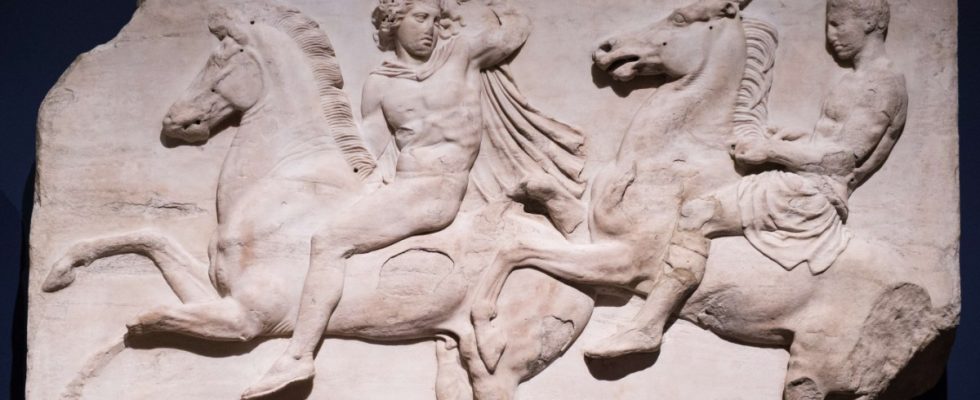It was a different time. At the beginning of the 19th century, what is now called the Hellenic Republic or Greece still belonged to the Ottoman Empire. And the governor in Athens had agreed to the matter, it was said again and again from London. The British ambassador there, Lord Elgin, acted completely legally when he had essential elements of the Parthenon, the largest temple in the Acropolis, shipped to England: among other things, 21 gable figures and particularly well-preserved parts of the frieze (as today’s hardware store customer would Maybe look for something like this in the “trims” section). There are the marble sculptures, too Elgin Marbles called, owned by the British Museum since 1816.
For the Greeks at that time, belonging to the Ottoman Empire was not entirely voluntary, which is why a growing national movement pushed through the establishment of an independent state in 1830. The main ideology was Philhellenism – a return to the achievements of antiquity. This should also put an end to the rampant disgust towards human treasures such as the marble sculptures of the Parthenon.
From today’s Greek perspective, there is no question that the Elgin Marbles belong to Athens. By taking this position now in one Interview with the BBC Greek Prime Minister Kyriakos Mitsotakis, however, triggered a diplomatic earthquake. His British colleague Rishi Sunak, who was supposed to receive him for lunch at 10 Downing Street this Tuesday, had the meeting canceled at short notice.
The negotiations were moving towards loan agreements
The scandal also comes as a bit of a surprise because there had previously been signs of a cautious rapprochement. The British insist on their basic position that the British Museum, as the setting for the entire cultural history of humanity, is the only species-appropriate environment for the ancient marble figures. And according to British law, the museum’s holdings are not allowed to be sold anyway. In order to avoid this hurdle, both sides had drawn up possible arrangements based on loan contracts.
Mitsotakis explained Following his disinvitation, he would have liked to have had a direct exchange with Sunak about this topic: “Anyone who believes that their own stance is right and justified does not need to be afraid of counter-arguments.” The left-wing opposition leader Stefanos Kasselakis supported him: It was a “moral question that concerns the shameless theft of cultural assets from their natural environment.”
Sunak said his country’s relationship with Greece was “extremely important”; For example, they work together in NATO and on “common challenges such as illegal migration”. All of this could have been discussed – his deputy would have been willing to meet with Mitsotakis. The Greek head of government rejected this alternative solution – and reiterated his “annoyance” in an official statement.

